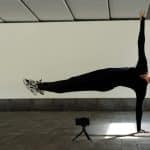In the world of elite sports, every second counts. From the high-stakes arenas of professional football to the grueling trails of ultra-endurance competitions, athletes are constantly seeking ways to enhance their performance and gain an edge over their competitors. One area of increasing focus is the role of sleep in athletic recovery and performance. With the advent and proliferation of sleep tracking devices, athletes now have more data at their fingertips than ever before. But what impact does this sleep data really have on recovery in ultra-endurance athletes? This is the question we will seek to answer in this article.
The Relationship between Sleep, Recovery, and Performance in Sports
Understanding the relationship between sleep, recovery, and athletic performance is crucial for anyone involved in sports, particularly in highly demanding disciplines such as ultra-endurance events. Sleep is a fundamental part of the body’s recovery process. During this time, the body repairs muscle tissue, releases hormones that aid in growth and recovery, and replenishes energy stores. Inadequate or poor-quality sleep can impede these vital recovery processes, potentially leading to decreased performance and an increased risk of injuries.
Dans le meme genre : What’s the Effect of Acoustic Stimulation on Performance in Precision Sports?
Recent studies have sought to quantify the relationship between sleep and athletic performance. The results show that when athletes get more sleep, their speed, accuracy, and reaction times improve. Conversely, when sleep is restricted, performance tends to deteriorate. A study conducted by the Paris Saint-Germain (PSG) Sports Science Team found that players who slept less than 8 hours per night had a 1.7 times higher risk of injury than those who slept for 8 hours or more.
The Role of Sleep Tracking Devices in Sports
Sleep tracking devices are wearable technologies designed to monitor various aspects of sleep, including total sleep time (TST), sleep stages, and sleep quality. These devices provide athletes and their coaching teams with objective data about their sleep patterns, which can be used to identify areas for improvement and to tailor individualized recovery strategies.
Cela peut vous intéresser : How Can Data Analytics Improve Scouting and Recruitment in Professional Football Clubs?
One of the key measures provided by these devices is TST, or Total Sleep Time. This parameter is vital, as it gives an indication of the overall amount of sleep an athlete is getting. Studies have shown that endurance athletes, in particular, need more sleep than the average person due to their high training volumes and the physical stress they put on their bodies.
Sleep tracking devices also provide data on sleep stages, including light, deep and REM sleep. Each of these stages plays a crucial role in the recovery process. For instance, deep sleep is when most of the growth hormone is produced, which aids in muscle recovery. REM sleep, on the other hand, is associated with memory consolidation and learning, which may affect an athlete’s capacity to implement new techniques or game plans.
The Impact of Sleep Data on Recovery in Ultra-Endurance Athletes
In the realm of ultra-endurance sports, where athletes push their bodies to the limits for extended periods, recovery is of utmost importance. The data provided by sleep tracking devices can play a pivotal role in optimizing this recovery process.
Participants in a recent study involving ultra-endurance cyclists were given sleep tracking devices to monitor their sleep during a multi-day event. The data collected revealed a strong correlation between sleep duration and subsequent performance, with athletes who got more sleep performing better in the later stages of the race.
Moreover, teams equipped with sleep data were able to make informed decisions about rest periods, training loads, and even race strategy. For instance, if an athlete’s data showed a decrease in deep sleep, this could indicate that they are not getting enough rest and their training intensity may need to be adjusted to prevent overtraining and potential injury.
The Future of Sleep Tracking in Elite Sports
As sleep tracking technology continues to advance, we can expect its role in sports, particularly in ultra-endurance events, to become even more significant. Future developments in this field may include more precise measures of sleep quality, the ability to detect sleep disorders, and even predictive analytics that can forecast an athlete’s performance based on their sleep patterns.
Though it is clear that sleep tracking offers valuable insights for athletes, it is not a panacea. It should be used in conjunction with other recovery strategies such as nutrition, hydration, and active recovery methods. As with any technology, it is also essential to remember that the data it provides is just one piece of the puzzle. Athletes should still listen to their bodies and prioritize their health and well-being above all else.
In the high-stakes world of elite sports, sleep tracking technology has carved out a valuable niche. By providing objective, detailed data on athletes’ sleep patterns, it is helping to illuminate the crucial role that sleep plays in recovery and performance, empowering athletes to train smarter, recover faster, and perform at their best.
The Effect of Sleep Deprivation on Ultra-Endurance Athletes
Sleep deprivation is a common experience among ultra-endurance athletes due to the intense nature of their training and competitions. The cumulative effect of inadequate sleep can lead to significant detriments to an athlete’s physical and mental health.
Long periods of physical exertion can lead to a phenomenon known as sleep onset latency, which is the length of time it takes to transition from full wakefulness to sleep. This latency can be prolonged in athletes due to heightened physical and mental activation from training or competition. Prolonged sleep onset latency can reduce total sleep duration and is often associated with poor sleep quality and efficiency.
Importantly, sleep deprivation can also impact heart rate variability (HRV), a key metric for assessing an athlete’s recovery status. Reduced HRV has been linked with increased fatigue and decreased performance in athletes. Sleep tracking technology can provide vital data on these sleep parameters, helping athletes and their teams to understand and manage their sleep and recovery better.
On the other hand, various studies have demonstrated that sleep deprivation can lead to mood alterations, increased perception of effort, and decreased cognitive function. According to a study available on Google Scholar, sleep deprivation can impair decision-making and reaction times, crucial aspects in the demanding world of ultra-endurance sports.
Therefore, understanding the effects of sleep deprivation and implementing strategies to mitigate these effects are vital in promoting the overall health and performance of ultra-endurance athletes.
Role of Rest Day and Consumer Sleep Tracking Technology in Sleep Recovery
In an athlete’s training regimen, a rest day is traditionally used to allow the body to recover. However, with the advent of consumer sleep tracking technology, the concept of a rest day has evolved beyond merely abstaining from training.
Devices like the SleepScore Max can provide insights into sleep quality and duration, helping athletes to make the most of their rest days for optimal recovery. They can provide data on key sleep parameters such as REM sleep, deep sleep stage, and sleep efficiency, allowing athletes to tailor their rest day activities to maximize sleep recovery.
These devices also offer insights into sleep onset and onset latency, helping athletes understand their body’s sleep patterns better and make necessary adjustments for improved sleep quality. With this technology, athletes can also monitor their heart rate variability, an important physiological marker for recovery.
However, as with all technology, consumer sleep trackers should not be seen as a replacement for professional medical advice. Athletes experiencing persistent sleep issues should consult a sports med professional or a sleep specialist.
Conclusion
Sleep tracking technology has undeniably made a significant impact on the recovery process of ultra-endurance athletes. It has provided a wealth of data, translating into useful insights that can guide training, recovery, and even competition strategies. However, it is crucial to remember that technology is a tool, not a cure-all.
While these devices can track sleep stages, duration, efficiency, and onset latency, they cannot replace the importance of good sleep hygiene practices and a balanced lifestyle. Athletes should continue to prioritize balanced nutrition, hydration, mental health, and active recovery methods. As much as the data is helpful, listening to the body and understanding its signals remains paramount.
In the future, we can expect even more advances in this field. In the meantime, athletes, coaches, and teams should continue to leverage sleep tracking technology, alongside a holistic approach to training and recovery. After all, in the fiercely competitive world of elite sports, every bit of advantage counts.










